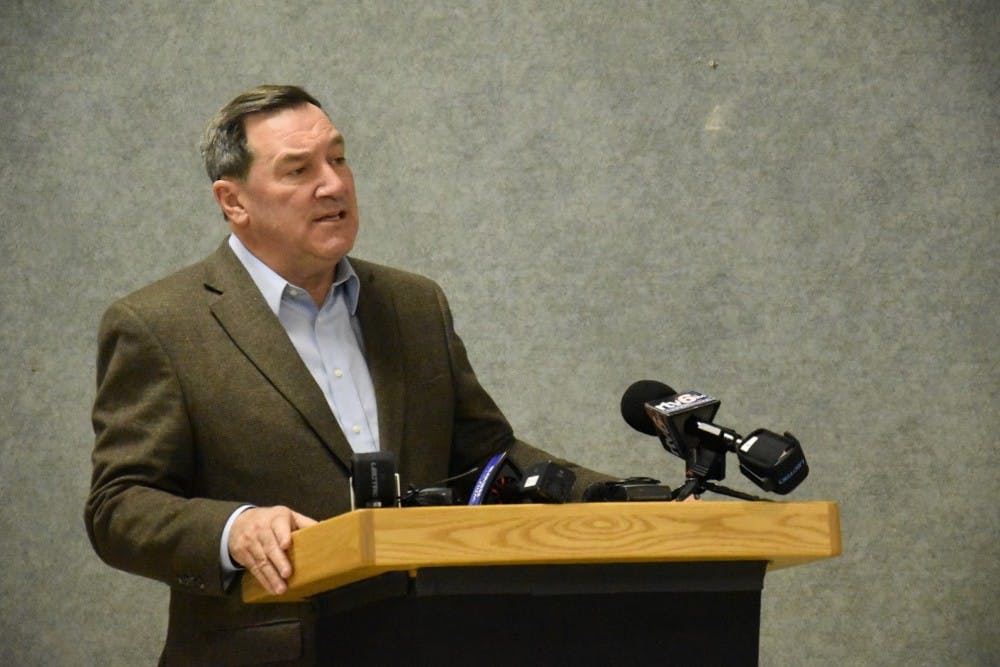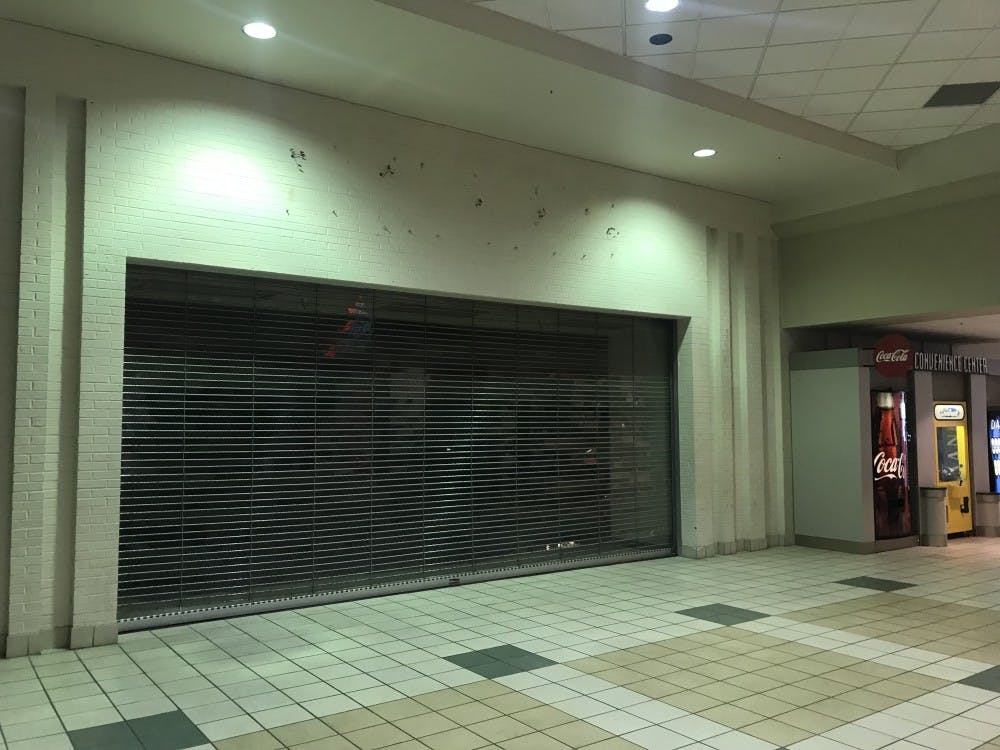Health care, Supreme Court nominees and the Pell Grant program were a few of the many subjects U.S. Sen. Joe Donnelly was asked about at his town hall on Sunday in John R. Emens Auditorium.
Donnelly said he acknowledged "many of the issues" that could affect Ball State students, and for him Pell Grants continue to be a point of attention.
“I think destroying the Pell Grant program is one of the worst ideas you could possibly have,” Donnelly said. “What are we if we are not investing in our children and our grandchildren?”
President Trump’s new budget proposal calls for a reduction in funding for the Pell Grant program by $3.9 billion. The Pell Grant program gives up to $5,920 to students in families that earn less than $40,00 and does not have to be paid back.
"Every kid deserves a shot, every kid deserves love and deserves an education," Donnelly said. "I am not doing my job as senator if we are not looking out for every kid in our state."
The senior Indiana senator's town hall comes after many fellow members of congress were met with fierce protest at their own town halls. For Donnelly, constituents weren't hesitant to press him on current issues. However, there was far less contention from the crowd than others in congress have recently faced.
Early on, Donnelly was questioned from audience members about concerns relating to health care — a subject that was repeatedly brought up throughout the town hall. Donnelly voted for the Affordable Care Act during his time as a representative and said the health care repeal "would not be good" for Indiana because of the state’s ongoing battle with heroin and opioid addiction.
“When you have a proposal in [the GOP health care plan] to reduce the funds for addiction treatments, it just doesn’t make any sense,” Donnelly said.
He was also pressed from multiple political viewpoints about how he will vote in regards to the nomination of Neil Gorsuch to the United States Supreme Court. Hearings for Gorsuch start on Monday, and Donnelly said he wants to hear what Gorsuch has to say before making a decision.
Many in the Democratic party are angry about the Gorsuch nomination after the Republican-controlled senate refused to give former President Barack Obama’s nominee, Merrick Garland, a hearing.
“What was done to [Garland] was wrong,” Donnelly said. “But my job is to evaluate judge Gorsuch.”
Some in the audience were not satisfied with Donnelly’s first answer. He was pressed again on this issue by freshman political science major Nathan Crapó.
“You’ve had 50 days to look over Neil Gorsuch," Crapó said. "Can you give the people of Indiana a clear answer on whether or not you are going to do your duty and vote ‘yes’ for Neil Gorsuch?”
Crapó received boos from the crowd after posing his question, and Donnelly never gave a direct “yes” or “no” answer in response.
“I think [his answer] confirms that politics is more important than constituency,” Crapó said.
Donnelly was also asked about President Trump’s proposed budget which eliminates funding for the National Endowment for the Arts (NEA) and reduces funding for the National Institute of Health.
"This is an initial budget document that we’re looking at,” Donnelly said. “It will be changed, I promise you it will be changed, it’ll be changed to become much more sensible.”
When asked specifically about funding for the NEA, Donnelly said, “It makes no sense to me.”





